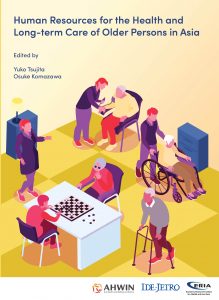The international migration of nurses and care workers is increasing. Many factors, such as population ageing and the development of healthcare services, contribute to the greater demand for nurses and care workers. Several mechanisms have been put in place to facilitate the mobility of nursing services professionals. For example, a mutual recognition agreement for nursing services amongst ASEAN Member States (AMS) came into effect in 2012. There are also bilateral mechanisms such as the economic partnership agreements between Japan and Indonesia, Japan and the Philippines, and Japan and Viet Nam. The migration of nurses is not always regulated by such frameworks. They migrate even to work as institutional or home care workers, and such migrants tend to be less regulated by the authorities and some of them work under informal contract arrangements. This report focuses on Indonesia as a country sending migrant nurses, Malaysia and Japan as destination countries, and Thailand as a country struggling to cope with the fastest population ageing amongst AMS. It is hoped it will give readers a better understanding of the overall picture concerning the mobility of nursing services professionals.


